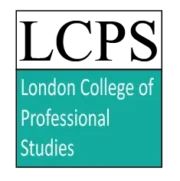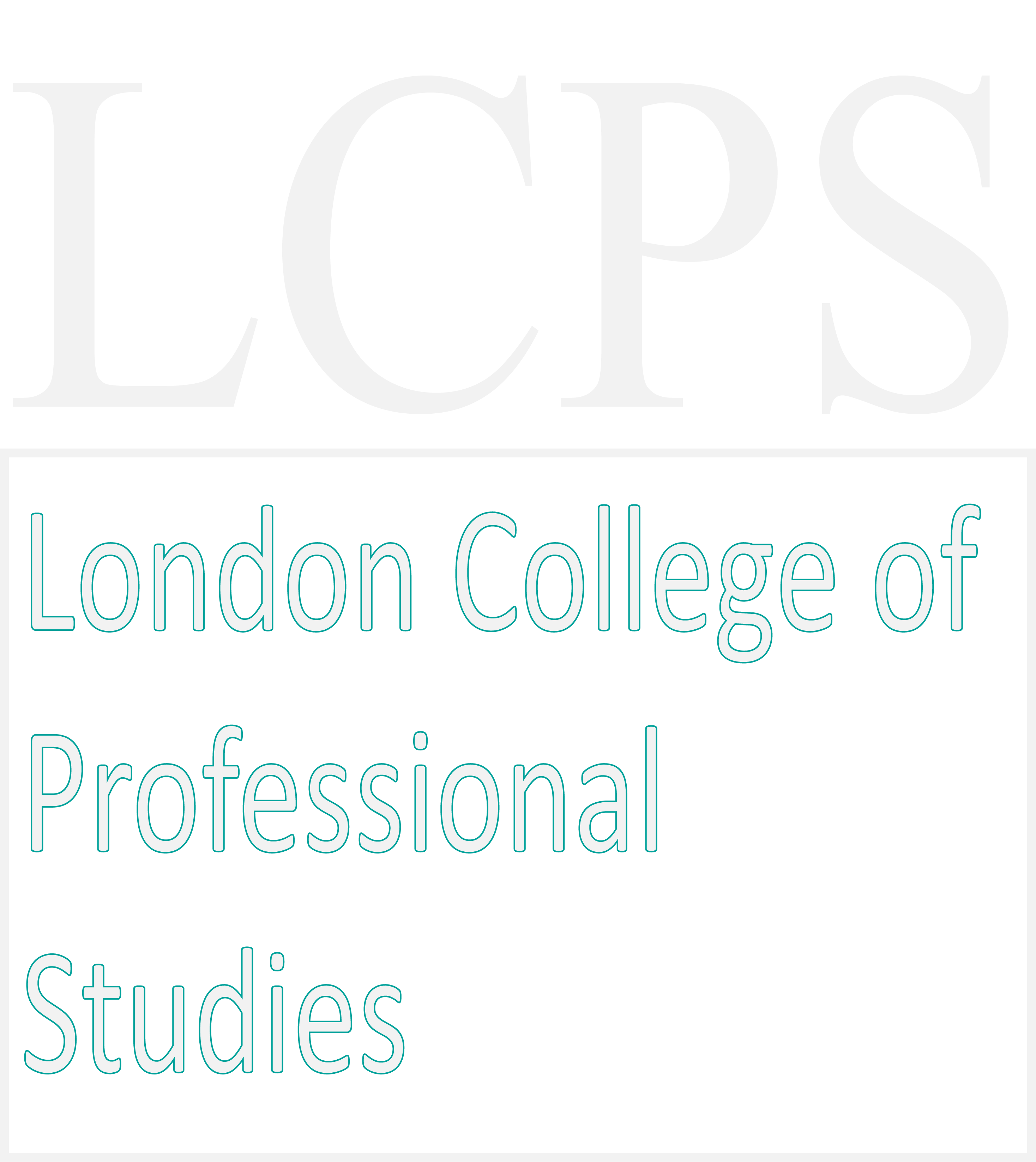Academic Integrity & Plagiarism Policy
November 10, 2023 2023-11-15 12:16Academic Integrity & Plagiarism Policy
Academic Integrity & Plagiarism Policy
Academic integrity is a fundamental value of London College of Professional Studies. We are committed to promoting a learning environment where honesty, integrity, and ethical behaviour are upheld. This policy aims to define and prevent plagiarism, as well as outline the consequences for academic dishonesty. All students, faculty, and staff are expected to adhere to this policy.
1. Definitions
Academic Misconduct: Academic misconduct is dishonest, unacceptable and not allowed by London College of Professional Studies (LCPS). If you are discovered or suspected of academic misconduct, LCPS will investigate, and this may result in disciplinary action being taken.
Cheating: Cheating is acting unfairly or dishonestly to gain an advantage.
Plagiarism: The act of using someone else’s work, ideas, or intellectual property without proper citation or authorization.
Self-Plagiarism: The act of submitting one’s own previously submitted work without proper citation or authorization.
Collusion: Unauthorized collaboration or cooperation on academic assignments or assessments.
Fabrication: The creation of false or misleading information to deceive or gain an unfair academic advantage.
Cheating: The use of unauthorized materials or methods to gain an unfair academic advantage.
2. Principles of Academic Integrity
London College of Professional Studies (LCPS) is dedicated to maintaining the highest standards of academic integrity, guided by principles that include honesty, whereby all academic work should reflect a student’s individual effort and accurately represent their knowledge and abilities. Accountability is paramount, with students, faculty, and staff sharing the responsibility for upholding academic integrity and preventing violations. Fairness is upheld through equitable assessment and grading procedures, and respect is demonstrated by acknowledging and properly attributing the work and ideas of others.
3. Prohibited Conduct
The London College of Professional Studies (LCPS) enforces strict prohibitions on the following actions:
Plagiarism, including self-plagiarism.
You are required to submit work that is entirely your own. This means you must exclusively submit your original work for assessment. To avoid plagiarism, you must clearly indicate when you have utilized information provided by others by crediting the source’s name and identifying where you obtained the information within your work or portfolio. If you are uncertain about proper citation, you should seek guidance from your instructors.
Collusion
You must not collaborate with others inappropriately, particularly when such collaboration is not allowed by the assignment or the course guidelines. Collaborative work should adhere to the established rules and policies.
Fabrication
Falsification or fabrication of data, information, or any aspect of your academic work is strictly prohibited.
Cheating
Cheating, in any form, such as unauthorized access to information during exams, using unauthorized materials, or attempting to gain an unfair advantage, is considered a serious breach of academic integrity.
Use of unauthorized Artificial Intelligence chat bots
The use of unauthorized Artificial Intelligence chat bots (ChatGPT) or similar technology to generate, assist, or complete academic assignments is strictly prohibited. Such tools may only be used as per the guidelines provided by the course instructor.
Any other dishonest or unethical academic behaviour
In addition to the specific prohibitions mentioned above, any form of unethical or dishonest academic behaviour is strictly prohibited, including but not limited to submitting work for multiple courses without permission.
LCPS regards these guidelines and prohibitions as fundamental to maintaining academic integrity and expects all members of its community to adhere to them rigorously.
4. Detection of Plagiarism
LCPS is committed to maintaining the highest standards of academic integrity, which includes a rigorous approach to the detection and investigation of academic misconduct. All cases of suspected academic misconduct, particularly plagiarism, will be thoroughly investigated by LCPS to ensure fairness and uphold the College’s academic standards.
As part of our commitment to ensuring academic integrity, LCPS uses Turnitin to scrutinize all submitted work and assess it for potential plagiarism and other forms of academic misconduct. The acceptable use of Artificial Intelligence (AI) in academic work is set at 10%, any form of plagiarism exceeding 20% will be considered a breach of academic integrity.
5. Sanctions for Academic Misconduct
In alignment with the London College of Professional Studies’ commitment to upholding academic integrity, sanctions may be imposed in response to academic misconduct. It is important to note that the severity of the sanction is determined based on the nature and gravity of the offense.
Each submission that fails due to grounds of plagiarism or any other form of misconduct will be counted as an attempt. After the ‘first’ plagiarized submission, students will be granted a maximum of two additional attempts (at the discretion of the academic authorities) to demonstrate their adherence to academic integrity. If, after these opportunities, students persist in failing to meet the established standards, the following sanctions may be imposed, at the discretion of Supervisor:
Failing Grade: Students found in violation of academic integrity may receive a failing grade for the assignment or the entire course. The grade “F” will be recorded on the academic transcript.
Academic Probation: Students may be placed on academic probation, during which they are closely monitored for compliance with academic integrity standards. Any subsequent violations during this period may result in more severe consequences.
Expulsion: Repeated instances of academic misconduct may result in expulsion from the college, which means the student is permanently separated from LCPS and cannot reapply in the future.
In addition, LCPS may also:
- Inform the relevant examining body what you have done, in accordance with the awarding body’s/examining board’s policy
- Inform external examiners/verifiers of what you have done, in accordance with the awarding body’s examining board’s policy
- Use the recorded information if LCPS is asked to provide a reference for you.
6. Appeals
Students have the right to appeal academic integrity violations. Detailed appeal procedures are outlined in the LCPS Academic Appeals Policy.



